

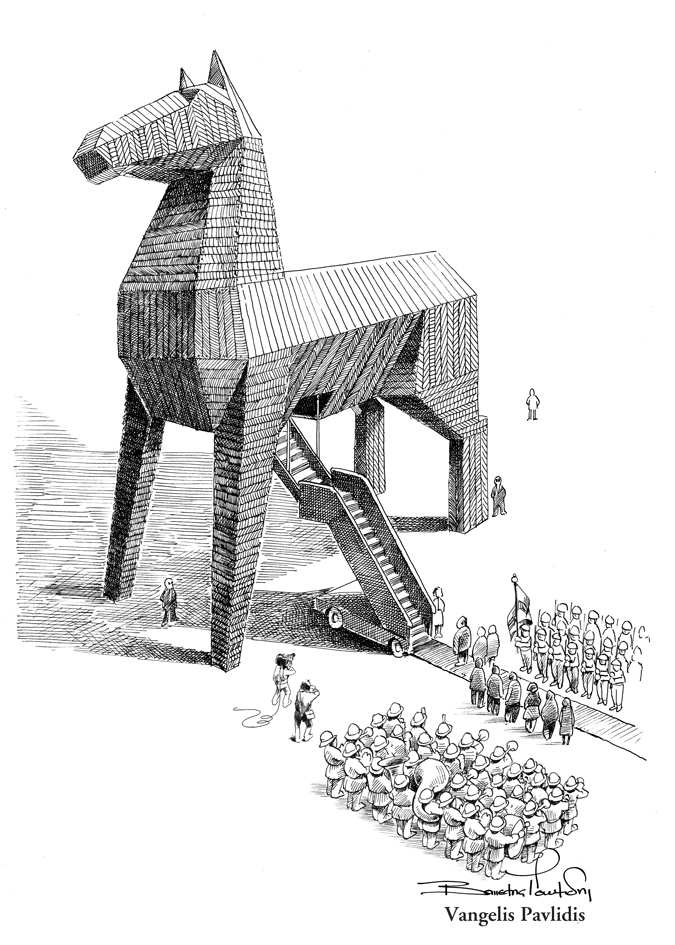
Μια μέρα σαν σήμερα πρίν 3201 χρόνια, το 1184 π.Χ., το “ιερόν πτολίεθρον” της Τροίας παραδινόταν την σφαγή και την φωτιά. Αυτό μας λέει ο Ερατοσθένης και μη ρωτάτε -όχι εμένα πάντως- πώς έκανε τον λογαριασμό με τόση ακρίβεια. Ποιό σύγχρονοι υπολογισμοί τοποθετούν το πάρσιμο της Τροίας κάπου έκεί στα 1260 με 1180 π.Χ. Όχι και πολύ διαφορετικά απο τον Έλληνα μαθηματικό, αστρονόμο, γεωγραφο και… και…
Την ημέρα πάντως εκείνη το ελληνικό πνεύμα έκανε στην ανθρωπότητα ένα ακόμα δώρο: τον Δούρειο Ίππο. Στα χιλιάδες χρόνια που πέρασαν απο τότε το ξύλινο άλογο άλλαξε πολλές μορφές, εξελίχτηκε, προσαρμόστηκε, τελειοποιήθηκε μα δεν έπαψε να βασίζεται πάνω στην ίδια αρχή της απάτης με αγγελικό πρόσωπο.
Στην Αινειάδα, ο Βιργίλιος βάζει τον Λαοκόοντα να προειδοποιεί τους Τρώες: “Timeo Danaos et dona ferentes”, φοβού τους Δαναούς και δώρα φέροντας. Έτσι μας κόλλησε η ρετσινιά που μας κυνηγάει απο τότε.
Εμείς να δούμε πώς θα σωθούμε απο τους “Δαναούς”.
It was on a day like today 3201 years ago, on 1184 B.C., the “Sacred City” of Troy was given to fire and massacre. This is what Eratosthenes tells us and don’t ask me how he calculate time so accurately. Contemporary research and calculations set the date of the fall of Troy somewhere around 1260 – 1180 B.C.. Not too far from the estimation of the Greek mathematician, astronomer, geographer and… and…
In any case, on that day the immortal Greek spirit made another gift to the world: The Trojan horse! In the course of the thousands of years since then the wooden horse haw changed many shapes and forms, it has evolved, perfected, adjusted but its essence remains the same: angel faced deceit.
In its “Aeneid” Virgil has Laocoon warning the Trojans: “Timeo Danaos et dona ferentes”, Fear the Greeks, even when they bear gifts”. In Greece there is the saying that it’s better to lose an eye than to get a bad name. Well, we did not lose an eye.
It remains to be seen who will save Greeks from the Greeks.



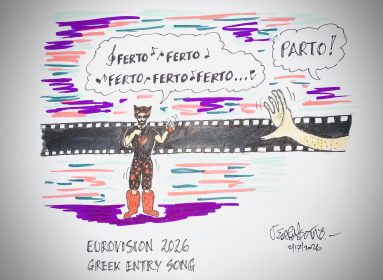

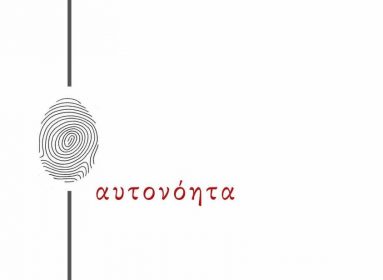
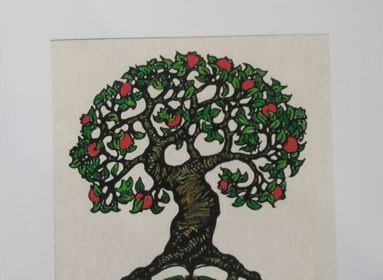
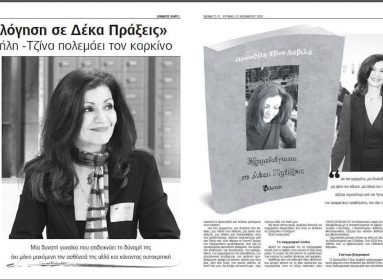













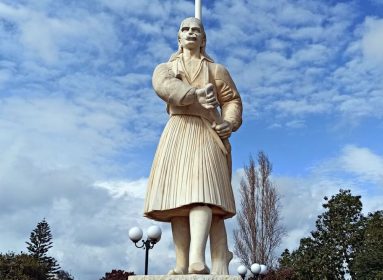
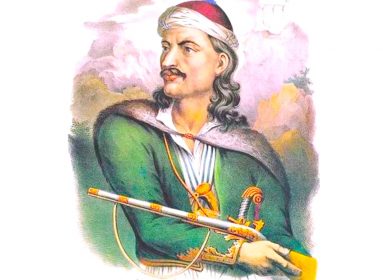






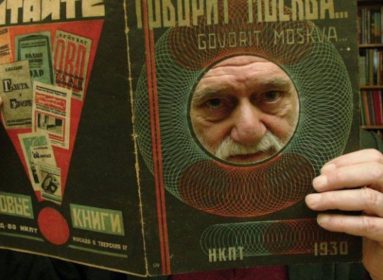
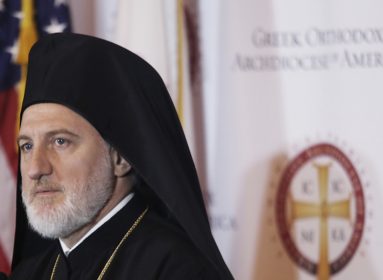







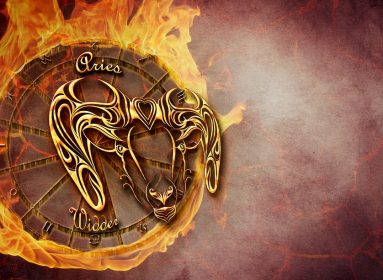

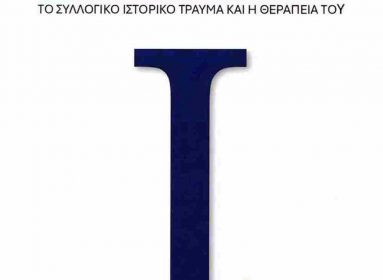
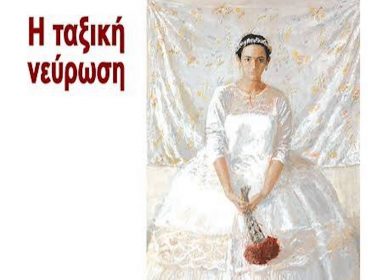

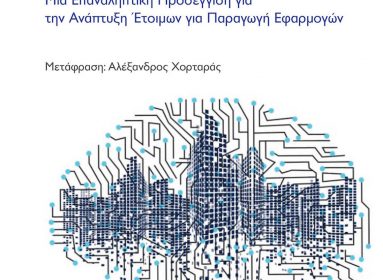
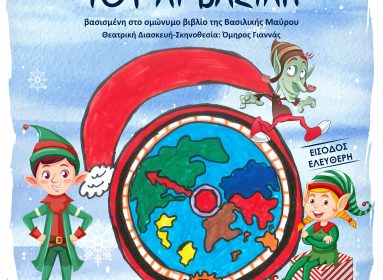




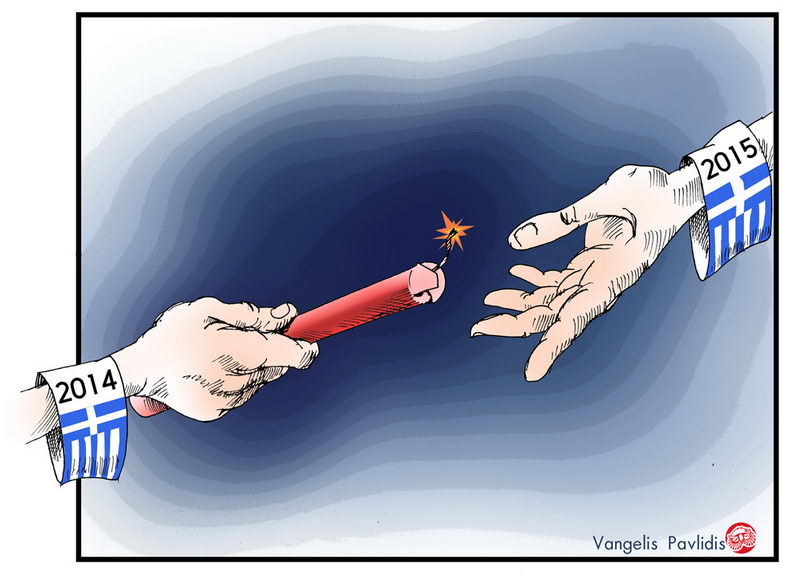

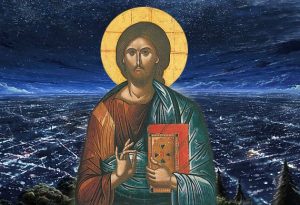


 Το σκίτσο είναι του Βαγγέλη Παυλίδη
Το σκίτσο είναι του Βαγγέλη Παυλίδη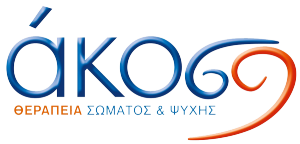
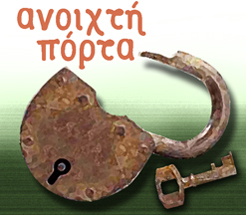
 Στηρίξτε-Ενισχύστε την iΠόρτα με τη δική σας χορηγία…
Στηρίξτε-Ενισχύστε την iΠόρτα με τη δική σας χορηγία…